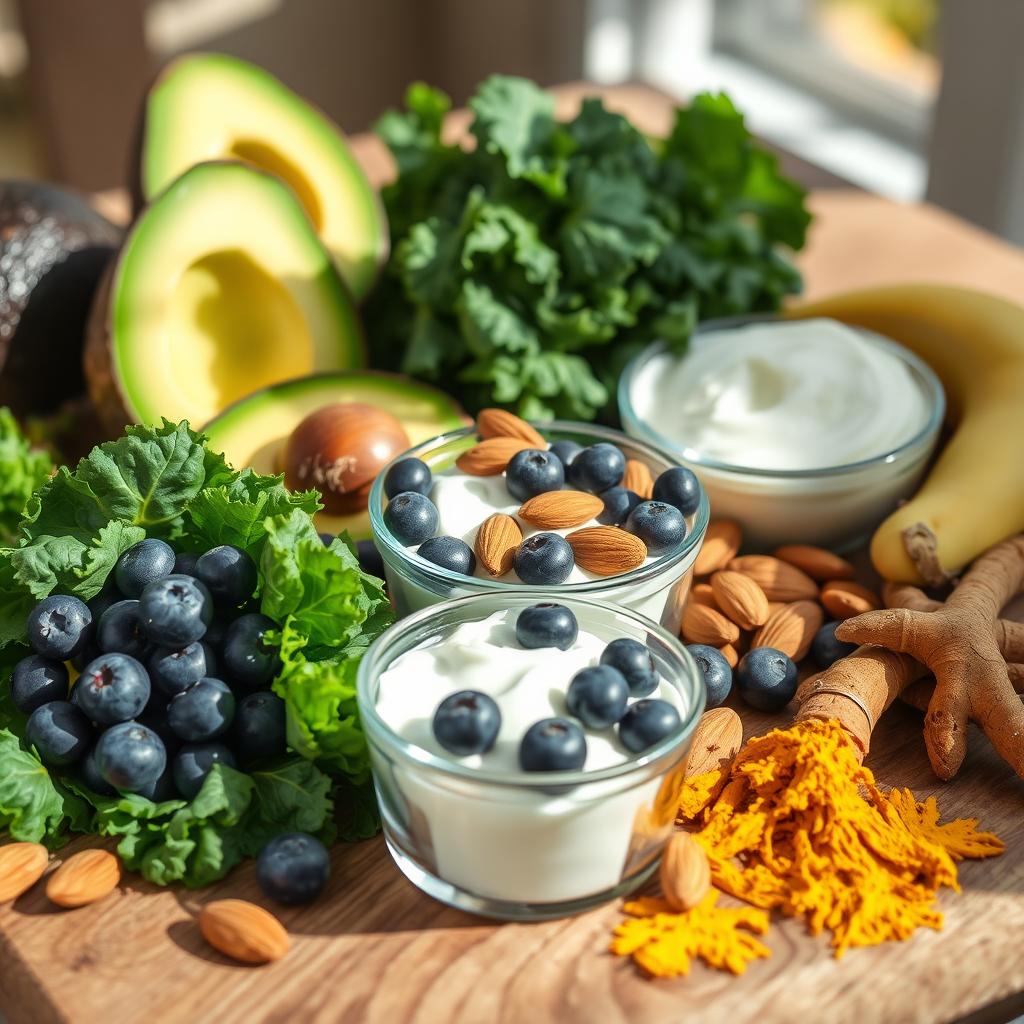Feeling sluggish, bloated, or just not your best? The answer might not be in a medicine cabinet, but in your kitchen pantry. Your gut is home to trillions of microorganisms, collectively known as your microbiome, and keeping them happy is one of the most powerful things you can do for your overall health. A well balanced gut influences everything from your digestion and immune system to your mood and energy levels. The foundation of this internal ecosystem is a consistent and thoughtful diet for gut health.
Why Your Gut Health is So Important
Think of your gut microbiome as a bustling city of tiny helpers living inside your digestive tract. This community is made up of bacteria, fungi, and other microbes. In a healthy gut, the beneficial microbes outnumber the potentially harmful ones, creating a state of balance called symbiosis. These good bugs help you break down food your body can’t digest on its own, produce essential vitamins like B12 and K, and protect you from pathogens.
When this balance gets thrown off a condition known as dysbiosis it can lead to a host of problems. You might experience digestive issues like gas, bloating, and irregular bowel movements. But the effects can ripple outward, contributing to a weakened immune system, skin problems, and even mental health challenges like anxiety. This is why focusing on a diet for gut health isn’t just about digestion, it’s about supporting your entire body’s well being.
The Dynamic Duo: Understanding Probiotics and Prebiotics
When you start exploring a diet for gut health, you’ll constantly encounter two key terms: probiotics and prebiotics. They work together as a team to support your microbiome, but they have very different jobs. Understanding this difference is fundamental to building a better gut.
What Are Probiotics?
Probiotics are the “good guys.” They are live, beneficial bacteria that you can introduce into your system through food or supplements. Think of them as reinforcements arriving to bolster the population of helpful microbes already living in your gut. They help maintain order and keep the less desirable bacteria in check. The most common groups of probiotics are Lactobacillus and Bifidobacterium, which you’ll often see listed on food labels.
What Are Prebiotics?
If probiotics are the reinforcements, prebiotics are their fuel source. Prebiotics are specific types of plant fiber that your body cannot digest. They travel down to your large intestine, where they become food for your beneficial gut bacteria. By feeding the good microbes, you help them grow, multiply, and thrive. In short, prebiotics are the essential nourishment that makes your probiotics effective. Common prebiotic fibers include inulin, fructans, and galactooligosaccharides (GOS).
Top 10 Foods for Your Daily Diet for Gut Health
Ready to start feeding your gut what it needs? Incorporating these ten foods into your regular meals is a fantastic way to begin. Building a better diet for gut health is about consistency, not perfection, so aim to include a few of these each day.
1. Yogurt
Yogurt is one of the most well known probiotic foods. It’s made from milk fermented by beneficial bacteria, primarily lactic acid bacteria and bifidobacteria. Eating yogurt can help increase the diversity of your gut microbes. When shopping, look for labels that say “live and active cultures” to make sure you’re getting the real deal. Plain, unsweetened yogurt is the best choice, as added sugars can feed the less desirable bacteria.
2. Kefir
Think of kefir as yogurt’s supercharged cousin. This fermented milk drink contains a wider and more diverse range of beneficial bacteria and yeasts than yogurt. Some studies suggest it can contain up to 60 different strains of microbes. Its liquid consistency makes it easy to add to smoothies or drink on its own, providing a powerful probiotic punch for your diet for gut health.
3. Sauerkraut & Kimchi
These fermented vegetable dishes are probiotic powerhouses. Sauerkraut (fermented cabbage) and kimchi (a spicy Korean staple) are rich in live bacteria created during the fermentation process. They also contain fiber and vitamins. To get the gut benefits, be sure to buy refrigerated, unpasteurized versions. The pasteurization process, which uses heat, kills off all the beneficial live cultures.
4. Lentils
Lentils, along with other legumes like beans and chickpeas, are packed with prebiotic fiber. Your body can’t break this fiber down, so it makes its way to your colon, where your gut bacteria feast on it. This feeding process produces beneficial compounds called short chain fatty acids (SCFAs), such as butyrate. Butyrate is the primary fuel source for the cells lining your colon and helps reduce inflammation.
5. Oats
Starting your day with a bowl of oatmeal is a fantastic move for your gut. Oats are rich in a specific type of soluble fiber called beta glucan. Like other prebiotic fibers, beta glucan promotes the growth of good bacteria and contributes to the production of SCFAs. It also helps slow digestion, which can help with blood sugar control and keep you feeling full longer.
6. Onions, Garlic & Leeks
These flavorful vegetables are part of the allium family and are excellent sources of prebiotic fiber, particularly inulin and fructooligosaccharides (FOS). They provide the necessary fuel for beneficial bacteria like Bifidobacteria to flourish. Whether raw in a salad or cooked in a soup, they are a simple addition to almost any savory dish in your diet for gut health.
7. Asparagus
Asparagus is another fantastic source of the prebiotic fiber inulin. It works by feeding your gut microbes and has been shown to help promote a healthy digestive system. It also contains a good amount of antioxidants and vitamins. Enjoy it steamed, roasted, or grilled as a simple side dish to support your internal ecosystem.
8. Bananas (Slightly Green)
While all bananas are good for you, slightly underripe, greener bananas are particularly beneficial for your gut. They are high in resistant starch, a type of carbohydrate that resists digestion in the small intestine. It functions similarly to prebiotic fiber, traveling to the large intestine to feed your healthy bacteria. As a banana ripens and turns yellow, the resistant starch turns into regular sugar.
9. Berries
Raspberries, blueberries, and strawberries do more than just taste great. They are loaded with fiber and powerful plant compounds called polyphenols. Gut bacteria love to snack on polyphenols, which have antioxidant properties that help reduce inflammation throughout the body. Their high fiber content also adds to their status as an essential part of any diet for gut health.
10. Extra Virgin Olive Oil
High quality extra virgin olive oil (EVOO) is more than just a healthy fat. It is a rich source of polyphenols, which act as antioxidants. Studies have shown that these compounds can help increase the population of beneficial bacteria and reduce the number of pathogenic bacteria in the gut. Using EVOO as your primary cooking oil or salad dressing is an easy way to get these benefits.
Foods That Can Disrupt Gut Health
Just as some foods build a healthy gut, others can disrupt it. While an occasional treat is fine, regularly consuming these can shift your microbiome balance in the wrong direction. A successful diet for gut health involves limiting these items.
| Food Group | Why It Can Be Disruptive |
|---|---|
| Highly Processed Foods | Often high in unhealthy fats, sugar, and additives while being very low in fiber. This combination can promote the growth of inflammatory gut bacteria. |
| Excessive Sugar | Large amounts of sugar, especially from sugary drinks and sweets, can feed less desirable yeasts and bacteria, leading to an imbalance (dysbiosis). |
| Artificial Sweeteners | Some research suggests that artificial sweeteners like aspartame and sucralose may alter the balance of gut bacteria and not be as inert as once thought. |
| Too Much Red Meat | High consumption of red meat can promote the growth of bacteria that produce trimethylamine N oxide (TMAO), a compound linked to inflammation. |
Frequently Asked Questions About a Diet for Gut Health
Navigating the world of gut health can bring up a lot of questions. Here are answers to some of the most common ones.
How long does it take to improve gut health with diet?
You can see changes in the composition of your gut microbiome in as little as 24 to 72 hours after making significant dietary changes. However, establishing lasting, stable improvements takes consistent effort over weeks and months. The key is to make these healthy eating habits a permanent part of your lifestyle, not just a temporary fix.
Do I need to take a probiotic supplement?
For most people, a well rounded diet for gut health rich in probiotic and prebiotic foods is sufficient. A “food first” approach provides a wider range of nutrients than a pill can. However, a probiotic supplement might be helpful in specific situations, such as after a course of antibiotics, but it’s best to talk with a healthcare provider first.
Can I eat too many fermented foods?
If you’re new to fermented foods, it’s best to start slow. Introducing a large amount of probiotics all at once can sometimes cause temporary gas or bloating as your system adjusts. Begin with a small serving, like a spoonful of sauerkraut or a few sips of kefir, and gradually increase your intake as you feel comfortable.
What are the signs of an unhealthy gut?
Common signs include frequent digestive discomfort (gas, bloating, constipation, diarrhea), unintentional weight changes, constant fatigue, skin irritation like eczema, and food intolerances. Since the gut is so connected to the rest of the body, these signs are its way of signaling that something is out of balance.
Conclusion
Creating a vibrant, healthy gut microbiome doesn’t require a radical overhaul of your life. It starts with simple, consistent choices on your plate every day. By focusing on a diverse diet for gut health that is rich in fiber filled plants, prebiotic packed foods, and probiotic sources like yogurt and kefir, you provide your internal ecosystem with everything it needs to thrive. These small daily habits are a powerful investment in your long term health, helping you feel your best from the inside out.




